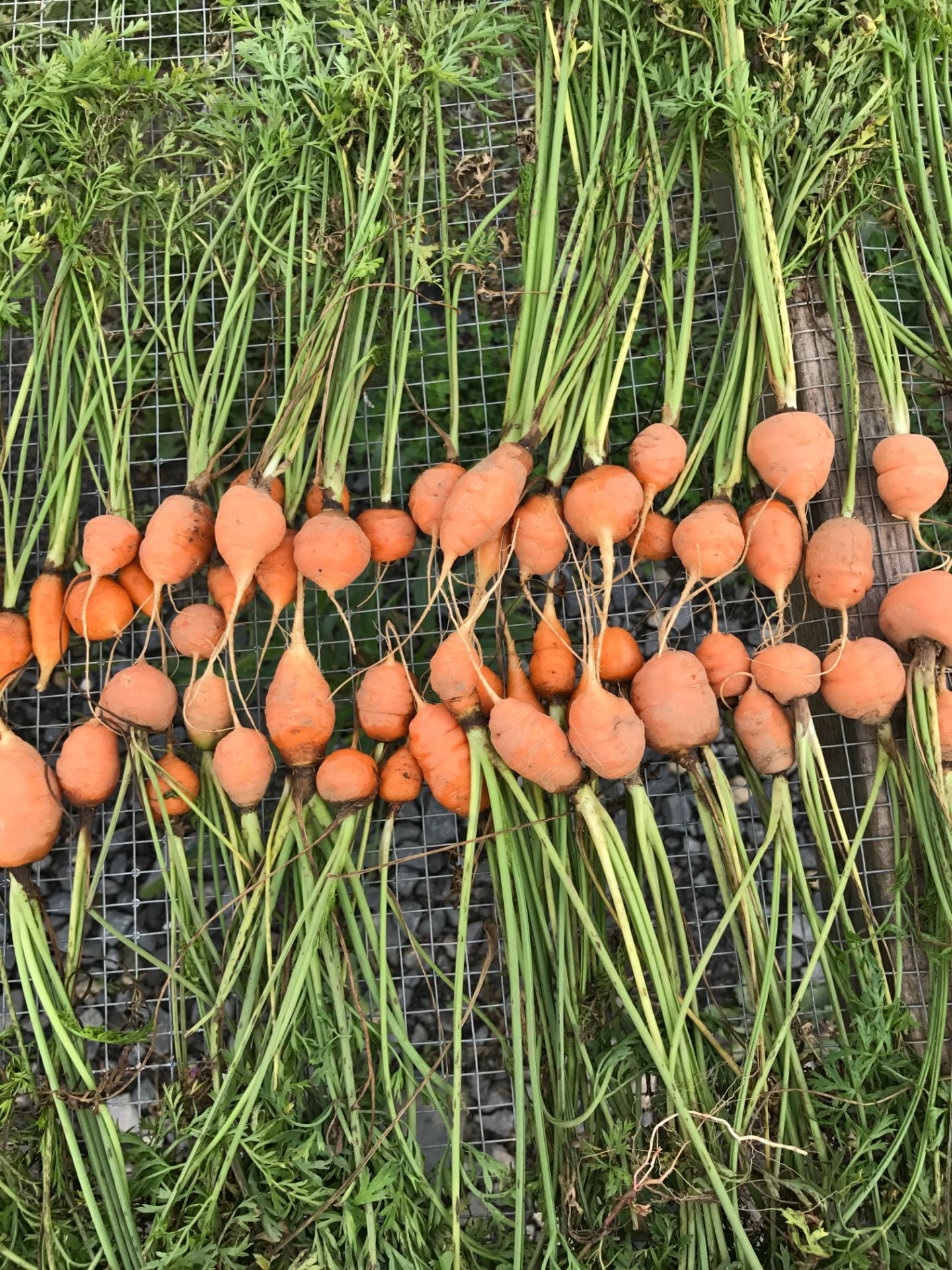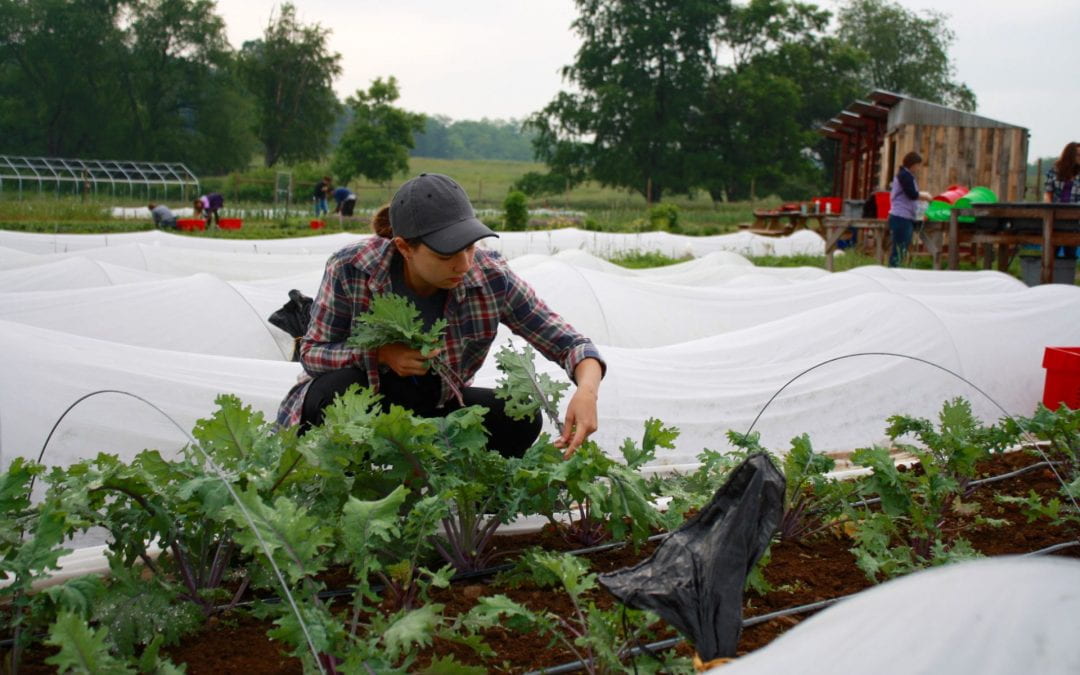What is a CSA?
In a Community Supported Agriculture (CSA) program, the grower-seller-consumer relationship has been redesigned. Instead of becoming a customer who solely purchases food from a seller, customers become a member of a cooperative effort with a farmer/grower to enable the farm to produce clean, responsibly grown produce. CSAs help to grow produce that has a minimal impact on the environment, creates a benefit to the customer, and provides the capital necessary for farmers/growers to produce the highest quality product possible.
Weekly Pickup Location, Dates, and Time
Pickup Location: Cellar Market (located on Eisenhower Rd. across from Eisenhower Parking Deck)
Maymester CSA: $65, pickup is weekly on Mondays May 9, May 16 and May 23 (3 weeks total), from 4:15-5:30pm
Summer CSA: $285, pickup is weekly on Mondays, June 6-August 15 (11 weeks total), from 4:15-5:30pm
Fall CSA: $200, pick up is weekly on Thursdays, September 22-November 10 (8 weeks total), from 4:15-5:30pm
The annual membership fee is $35 in 2022. This only needs to be paid once per year and covers all seasons. The membership supports the Student Farm’s mission to provide hands-on educational opportunities.

Fill out the form below to request a CSA share. While spots remain, we will email you a registration form to print, fill out, and send back with your payment (cash or check). Once the registration form and payment has been received, your CSA spot will be confirmed. If you have any questions, please email Darin Ripp at dfr5440@psu.edu and studentfarm@psu.edu.
Note: You must be PSU faculty, staff or student with a PSU email address to sign up.
Produce and Greenhouse Practices
Our CSA follows strict food safety protocols that other commercial CSAs follow. Before contacting any produce, hands and tools will be washed. Distribution of products will be done in clean, food safe containers. Some of the crops such as tomatoes and cucumbers will be harvested daily in the peak of their season. To reduce the respiration of crops and decrease bacterial multiplication, harvested crops will be stored in a refrigerator until pickup. Students in charge of final packaging will check for spoiled produce. The field and greenhouse growing spaces will be kept clean along with regular checks for pests and disease. Even with these safety precautions, there is always a risk with consuming raw foods. For more information please visit http://www.foodsafety.gov/.
- All workers must wash their hands before handling crops.
- Produce will be harvested into clean, sanitary containers.
- Harvest dates will be recorded.
- After harvesting, produce will be kept refrigerated before distribution.
- Refrigerator temperature will be monitored and recorded to ensure produce is kept in optimum conditions.
- Produce should be thoroughly washed just before consumption.

